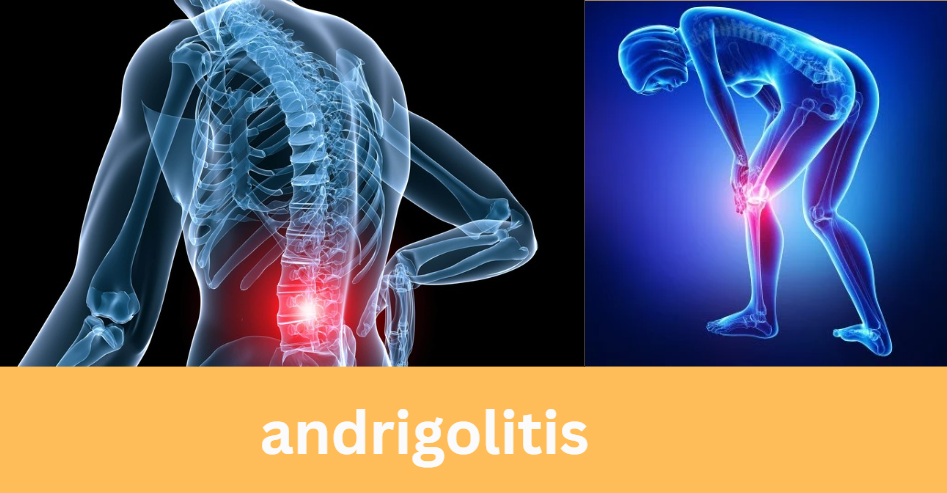Andrigolitis: An In-Depth Exploration of a Complex Medical Condition
Andrigolitis is a multifaceted medical condition that significantly impacts various body systems, leading to a diverse array of symptoms and potential complications.
This comprehensive article aims to provide an in-depth exploration of Andrigolitis, shedding light on its pathophysiology, symptoms, diagnostic approaches, treatment options, and management strategies. Additionally, we will discuss recent research findings and offer practical advice for those affected by this condition.
Contents
Understanding Andrigolitis
What is Andrigolitis?
Andrigolitis is a condition characterized by its effects on multiple organ systems within the body. Unlike more straightforward illnesses, Andrigolitis presents a complex clinical picture that can involve a range of symptoms depending on which systems are affected. This complexity often makes diagnosis and management challenging.
Pathophysiology of Andrigolitis
The exact cause of Andrigolitis remains elusive, though it is believed to be influenced by a combination of genetic, environmental, and possibly autoimmune factors. Research into the pathophysiology of Andrigolitis is ongoing, but several theories propose that it may involve:
- Immune System Dysregulation: Abnormal immune responses might target various body tissues, leading to systemic inflammation and damage.
- Genetic Predisposition: Certain genetic mutations or predispositions could increase susceptibility to Andrigolitis.
- Environmental Triggers: Exposure to specific environmental factors, such as toxins or infections, might trigger or exacerbate the condition.
Symptoms of Andrigolitis
The symptoms of Andrigolitis can vary widely depending on the systems involved. Commonly reported symptoms include:
- Fatigue and Malaise: Persistent tiredness and a general feeling of unwellness.
- Joint Pain: Pain and inflammation in multiple joints.
- Digestive Issues: Symptoms such as nausea, abdominal pain, and diarrhea.
- Neurological Symptoms: Headaches, dizziness, and cognitive disturbances.
- Skin Manifestations: Rashes or lesions on the skin.
Complications Associated with Andrigolitis
The multi-system involvement in Andrigolitis can lead to several complications, including:
- Chronic Pain: Due to ongoing inflammation or joint damage.
- Organ Dysfunction: Impairment of affected organs, such as the liver, kidneys, or heart.
- Secondary Infections: Increased susceptibility to infections due to a compromised immune system.
Diagnosis of Andrigolitis
Diagnosing Andrigolitis can be challenging due to its diverse presentation. Healthcare professionals typically follow a multi-step approach to diagnosis:
Clinical Evaluation
A thorough medical history and physical examination are crucial. Doctors will assess symptoms, their duration, and their impact on daily life. This evaluation helps in differentiating Andrigolitis from other similar conditions.
Laboratory Tests
Various laboratory tests may be conducted, including:
- Blood Tests: To check for markers of inflammation, autoimmune activity, and organ function.
- Genetic Testing: In some cases, genetic tests may be performed to identify any underlying genetic predispositions.
Imaging Studies
Imaging techniques such as X-rays, MRIs, or CT scans may be used to evaluate any structural damage to organs or joints.
Specialist Referrals
Given the multi-system nature of Andrigolitis, referrals to specialists such as rheumatologists, neurologists, or gastroenterologists may be necessary.
Treatment and Management of Andrigolitis
Pharmacological Treatments
Treatment for Andrigolitis often involves managing symptoms and preventing complications. Common pharmacological treatments include:
- Anti-inflammatory Medications: To reduce inflammation and relieve pain.
- Immunosuppressants: If an autoimmune component is suspected.
- Antibiotics: For secondary infections or bacterial complications.
Lifestyle Modifications
Lifestyle changes can play a significant role in managing Andrigolitis:
- Dietary Adjustments: A balanced diet that addresses specific symptoms or nutritional deficiencies.
- Exercise: Regular, low-impact exercise to maintain joint mobility and overall health.
- Stress Management: Techniques such as meditation or cognitive-behavioral therapy (CBT) to manage stress, which can exacerbate symptoms.
Alternative Therapies
Some patients find relief through alternative therapies, including:
- Acupuncture: To alleviate pain and improve overall well-being.
- Herbal Remedies: Certain herbs may have anti-inflammatory or immune-modulating effects.
Ongoing Research and Future Directions
Research into Andrigolitis is actively ongoing, with studies focusing on:
- Genetic and Environmental Interactions: To better understand the triggers and mechanisms of the disease.
- New Therapeutic Approaches: Development of targeted therapies and personalized medicine strategies.
- Long-term Outcomes: Studying the long-term effects of Andrigolitis and its treatments.
FAQs About Andrigolitis
What causes Andrigolitis?
The exact cause of Andrigolitis is not fully understood, but it is believed to involve a combination of genetic, environmental, and autoimmune factors.
How is Andrigolitis diagnosed?
Diagnosis typically involves a combination of clinical evaluation, laboratory tests, imaging studies, and referrals to specialists.
What are the treatment options for Andrigolitis?
Treatment focuses on managing symptoms and may include medications, lifestyle modifications, and alternative therapies. The specific approach depends on the individual’s symptoms and needs.
Are there any effective alternative treatments for Andrigolitis?
Some patients find relief through alternative therapies such as acupuncture and herbal remedies, though these should be discussed with a healthcare provider.
What is the prognosis for someone with Andrigolitis?
The prognosis varies depending on the severity of the condition and the effectiveness of treatment. Early diagnosis and comprehensive management can significantly improve outcomes.
Conclusion
Andrigolitis is a complex and challenging condition with a broad range of symptoms and potential complications. Understanding its pathophysiology, symptoms, and treatment options is crucial for effective management. Ongoing research continues to enhance our knowledge and treatment of Andrigolitis, offering hope for improved outcomes in the future. For those affected by Andrigolitis, a multidisciplinary approach to care and personalized treatment plans can make a significant difference in managing this intricate condition.

